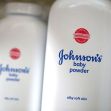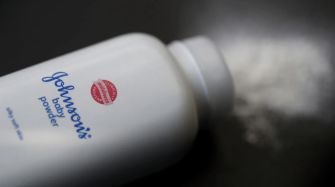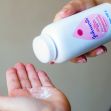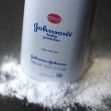A Los Angeles jury has ordered Johnson & Johnson to pay $966 million to the family of a California woman who died from mesothelioma, finding the company liable for selling talc products allegedly contaminated with asbestos. The verdict, which includes $950 million in punitive damages, stands among the largest to date in the company’s talc litigation and may test the limits of punitive-to-compensatory ratios under U.S. Supreme Court precedent.
The case was brought by the family of Mae Moore, an 88-year-old woman who died in 2021 after being diagnosed with the rare cancer. Jurors awarded $16 million in compensatory damages and the remainder in punitive damages after finding that Johnson & Johnson’s talc-based baby powder contributed to her illness. Under prior Supreme Court rulings, punitive awards are typically considered excessive if they exceed nine times the compensatory amount, meaning the verdict could be reduced on appeal.
Erik Haas, Johnson & Johnson’s worldwide vice president of litigation, said the company would immediately appeal, calling the verdict “egregious and unconstitutional.” Haas said the plaintiffs’ case relied on “junk science” that should not have been presented to the jury. The company maintains that its talc products are safe, contain no asbestos, and do not cause cancer. Johnson & Johnson stopped selling its talc-based baby powder in the United States in 2020 and transitioned to a cornstarch formulation the following year.
Attorneys for Moore’s family said the decision represents a measure of accountability for victims who developed asbestos-related illnesses after years of product use.
The verdict comes as Johnson & Johnson continues to face more than 67,000 lawsuits nationwide alleging its talc products caused cancer. Most cases involve ovarian cancer, while a smaller subset, including Moore’s, involves mesothelioma claims.
Johnson & Johnson has repeatedly sought to resolve the litigation through bankruptcy proceedings, a strategy known as the Texas Two-Step. Federal courts have rejected the company’s proposed reorganization plan three times, leaving the individual suits to proceed in state courts. The mesothelioma cases were not included in the company’s most recent bankruptcy proposal.
Recent outcomes in talc trials have varied. Last week, a South Carolina jury found Johnson & Johnson not liable, while an Oregon court earlier this year overturned a $260 million verdict and ordered a new trial.
The verdict is expected to undergo appellate review, where courts will assess the size of the award and the evidentiary record. Johnson & Johnson has confirmed that it intends to pursue its appeal and continue seeking a global resolution of the talc claims, maintaining that its products are safe and comply with all applicable federal regulations.






